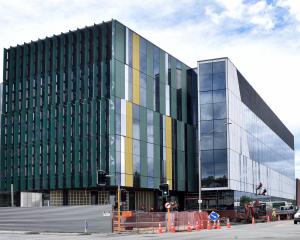Dunedin Hospital’s emergency department is changing procedures in an attempt to reduce long waiting times.
The ED has a six-hour target for people to be seen after arrival, which last quarter it met 92% of the time, ranking it ninth out of 20 DHBs.
However, ED can be swamped by patients, which results in that target being missed some days.
In February, ED experienced a surge in demand which meant patients waited several hours to be seen, staff used the resuscitation area and corridors as impromptu consulting rooms, and beds with patients awaiting admission were lining up in the ambulance bay.
With winter approaching — bringing with it a regular seasonal hike in patients — the department is taking action now to try to ease bottlenecks.
An inpatient medical assessment unit has been set up, to ensure appropriate patients were transferred out of the ED in a more timely manner, Southern District Health Board medicine and women’s and children’s health general manager Karin Drummond, said.
"This releases the beds in the ED to be utilised for another patient that may be waiting and allows those patients transferred to be treated in a more appropriate area for ongoing assessment."
Papers presented to the recent SDHB commissioners meeting said availability of beds at Dunedin hospital was a significant factor in delaying the length of stay in ED.
The department was seeking additional space, and once that was available, procedures would be changed to try to speed up wait times.
One change would be assessing patients immediately, rather than triaging then, and then assessing the highest priority patients first.
Staffing patterns would also be addressed. The availability of specialist doctors to come to ED was a recurring issue and appeared to be the single largest contributor to breaches of the ED six-hour target.
"Improving acute flow will directly and positively impacting on the ED six-hour KPI [key performance indicator]."
External consultants had been working on the issue, the paper said.
Ms Drummond said meeting the target of shorter stays at ED remained a challenge.
"Challenges ... involve the whole health system, and in particular, all areas of the hospital," she said.
"Factors include, but are not limited to, the numbers of patients attending; how sick they are; whether they have previously attended their GP; the number of referrals received from GPs; how busy the rest of the hospital is; whether there are residential beds in the community; the number of elective surgeries and length of stay of patients on the wards."
Projects were under way to try to address all of those issues, she said.












